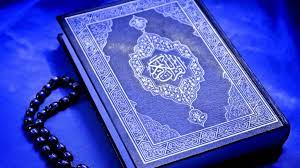These are the starting points. This is ground zero. This is where Islam drives its stake in the ground and makes infallible claims. The Quran claims that Islam is the final revelation, the final religion for all people in all places; that it abrogates all previous sacred books; that it has not changed in one letter since the time it was sent down from heaven from Gabriel’s lips to Mohammed’s ears; that it contains miraculous scientific insights, that it is a literary masterpiece.( Many incomplete sentences say ~ not so) The Quran Says that Mohammed is the latest and the greatest man, prophet, and example that ever lived. So, let us look at these few trinkets, a few factoids among many others that Islam has to defend and to date cannot. Let us count the ways.
- The story of Cain and Abel in the Quran is very different from that written in the Bible 2000 years earlier. And the earlier source is always the most trusted source. Yet the story of Cain and Abel as written in the Quran can be found in the Jewish Apocrypha if the second century, hundreds of year before the Quran was written.
- The Samaritans did not exist in Moses time as the Quran claims. 2. There was no such a thing as crucifixion in Moses day (1400 BC) as the Quran claims. Crucifixions were not performed until 500 BC.
- The Quran confuses Miriam the sister of Moses for Mary the mother of Jesus.
- The Quran has Pharaoh and Haman meeting each other although they lived centuries apart.
- The Quran has Pharaoh at the tower of Babel.
- David did not wear a coat of mail in 1000 BC. as chain mail was not invented until BC 200 eight hundred years later by the Celts (Surah 34:10—11). The Quran says that Jesus was not crucified but that it was someone else who took his place; yet historians who lived in Jesus era such as Thallus and Tacitus and Josephus, Suetonius, Polycarp and the four gospels etc. all mentioned his name and wrote otherwise (Surah 4:157).
- The Quran has Alexander the Great building a great wall between two mountains, miles apart, yet not one stone or written record of it can be found.
- The ninety-three times Jesus is mentioned in the Quran the same stories can be found in the pseudo-Gnostic gospels. The Jesus of the Quran is not the Jesus of the Bible.
- The story of Abraham at Mecca is right out of the 2nd century apocrypha folktales.
- The story of Solomon and Sheba also right out of the 2nd century Jewish apocrypha. God is not a plagiarist.
- The Sabeans who are mentioned several times in the Quran recited a creed; “There is no god but Allah.” Mohammed heard it and it at least appears that he added, “And Mohammed is his messenger.” The Sabeans also prayed five times a day and so do those who follow Islam. Some of the Persians believed that after death they went to paradise where perpetual virgins awaited them. These per-Islamic, pre-seventh century beliefs all made their way into Islam. None of these practices come from a perfect copy of the Quran in heaven.
- Consider the 2 million Islamist who make the annual Hajj or pilgrimage to Mecca. This is the tradition of walking around the Kaaba seven times. This tradition can be traced back to the pagan Nabotaeans in Petra who believed that there were seven planets and seven planetary deities that circled the earth. And so, as an act of wordship they walked around a Kaaba in Petra worshipping these seven deities.
- The prayer beads or knotted prayer ropes that believers in Islam use can be traced back to those used in the fourth century by monks in their monasteries.
- The names of the two mountains or hills that the polytheists of Petra ran between 1. As Sofa 2. Al Marwa can be found in Petros but not in Mecca.
- That there are scores of different Qurans that differ from one another in ten thousand places. This smacks of human intervention. The claims of “sent down,” “perfectly preserved,” “word for word” are rapidly unraveling.
Robert Bryant

